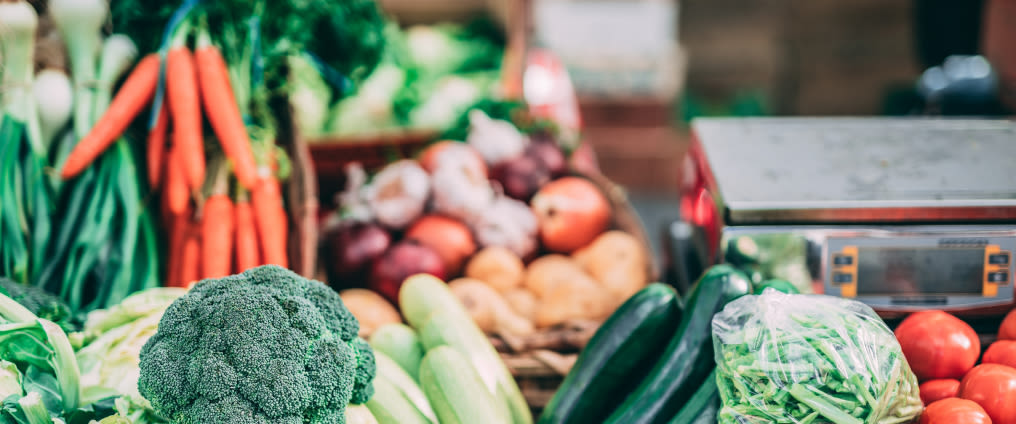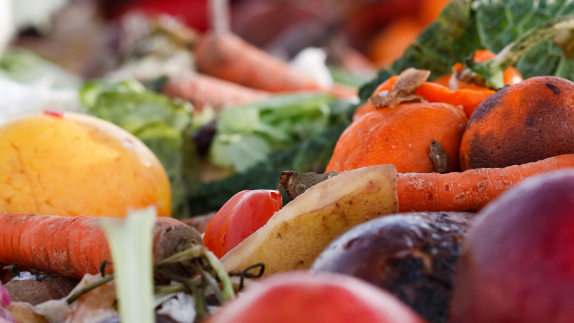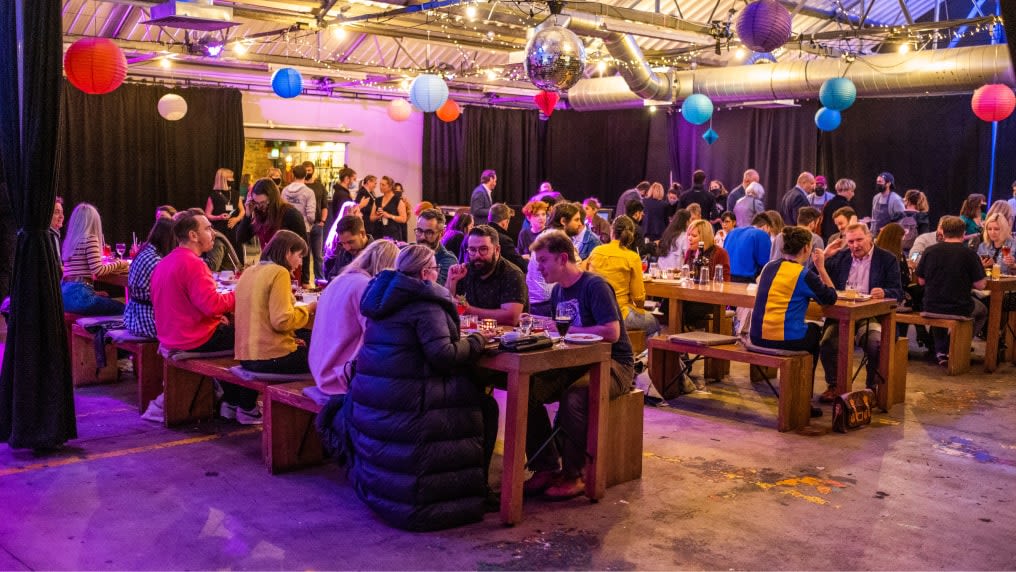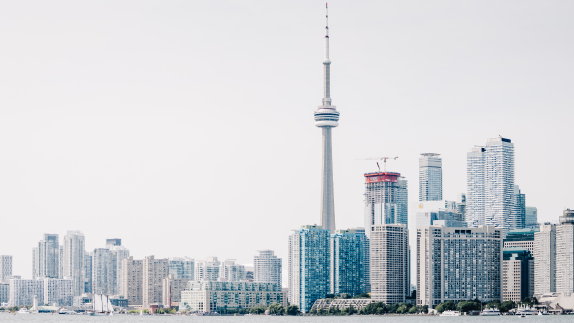Every second the equivalent of six garbage trucks of edible food are wasted globally. In cities, less than 2% of the valuable nutrients in food by-products and human waste are recovered for productive use. The modern food system is degrading and unhealthy, but cities could hold the key to changing this.
The solution
The Municipality of Milan and Fondazione Cariplo have taken a bold new strategic approach to support a new food system by developing the Milan Food Policy - a tool to support the city's food industry players as they manage food related challenges.
What makes the Milan Food Policy circular
Through local procurement, developing logistics for distributing surplus food, and valorising discarded organic material, Milan is making the most of its food resources while supporting the regeneration of natural systems.
The benefits
By working with local public and private organisations, and supporting innovation, Milan has seen important reductions in food waste and the associated costs. Through awareness raising and capacity building, local organisations involved with food are also able to evolve and benefit from this positive shift.
Cities as drivers for change in the food system
The modern food system has many challenges - it is hugely wasteful, degrades nature, and causes many people to be unhealthy, through both its consumption and production. The consequences are significant. A recent report published by the Ellen MacArthur Foundation estimated that for every dollar spent on food, society pays the equivalent of two dollars in health, environmental, and economic costs.
Cities, through their unique characteristics, assets, and capabilities, could play a key role in changing this. By 2050 more than two-thirds of people will live in cities. The average consumption of food per person tends to be higher in cities due to higher incomes and other factors. Combined, this means that by 2050 it is estimated that 80% of all food will be destined for cities, giving urban food players huge demand power. Cities also accumulate large volumes of valuable food by-products and waste, which if managed effectively can yield many new forms of value for the bioeconomy.
For these reasons, cities have great influence to shape the future food system. The ongoing work in Milan is a great example of policymakers realising this potential and creating the important policy foundation to support this transformation.
Milan - city of 1.3 million people with a strong food culture
Origins of the Milan Food Policy
Milan had been engaged in new thinking around food since at least 2006 as the city prepared their successful bid to host the 2015 Universal Exposition. In 2014, in the run up to the exposition, the municipality partnered with Fondazione Cariplo to promote and implement a comprehensive local food strategy - the Milan Food Policy.
The first step was to assess the local food system by engaging food experts and stakeholders. A public consultation was launched, involving city departments, universities, businesses, and other organisations, which collaborated to establish the most effective strategy, ultimately selecting five interconnected priorities:
Improving access to water and healthy food
Moving to regenerative food production
Raising awareness
Making the most of food
Supporting scientific research
To support the initiative, the Milan 2015-2020 Food Policy Guidelines were developed and a food policy office was established to coordinate efforts and monitor progress.
Towards a better urban food system
Since the launch, many concrete initiatives have been developed and implemented that build on the foundation of the Milan Food Policy.
A local ‘food waste hub’
In 2018, research was run between the Politecnico of Milan, which provided modelling and data analysis expertise, and Assolombarda, an umbrella organisation that connects supermarkets, businesses, and canteens. Together with the Milan Food Policy office, they explored the creation of edible food waste in three different neighbourhoods. This research culminated in the launch of a local ‘food waste hub’ located in a municipality warehouse, supported by Fondazione Cariplo (with the actions of the project QuBì) and the logistics required to bring in and redistributeredistributeDivert a product from its intended market to another customer so it is used at high value instead of becoming waste. food from private canteens, supermarkets, and street markets.
Awareness raising
Working with Milano Ristorazione, the municipal food agency that manages all school catering in the city, a campaign was run in 85 schools. Pupils in school canteens tend to waste fruit that is served at the end of their lunch, so children were instead encouraged to take their fruit as a mid-morning snack. Children were also provided with reusable doggy bags to take leftover food at the end of the school day. The campaign resulted in a 17% reduction of food waste.
Regenerating peri-urban and local soils, and creating biogas
Municipal trucks (many powered by biodiesel) regularly collect surplus food from households, commercial properties, and schools in Milan, and transport it to an anaerobic digestionanaerobic digestionMicrobial breakdown of organic matter in the absence of oxygen. and compostingcompostingMicrobial breakdown of organic matter in the presence of oxygen. plant. These organic resources are processed into biogas which is injected into the local gas network, and compost which is used to fertilise peri-urban farmland. Through a number of communication tools such as leaflets, radio, and television, Milan inhabitants were given guidance to encourage separation of different organic and non-organic materials, and by 2018, achieved a source separation rate of nearly 56%. In total for that year alone, approximately 130,000 tonnes of organic resources were processed in this way, avoiding 8,760 tonnes of carbon dioxide equivalent.
Fiscal measures
To further encourage markets, restaurants, private and school canteens, and others, a 20% municipal tax reduction was introduced in 2018 for any organisation that donates to food banks and food charities. Administration of this measure requires the collaboration of the fiscal, environmental, and food policy departments.
Procurement of locally sourced food products
Around 100 farms and 800 orchards surround Milan. The Distretto Agricolo Milanese (DAM), is a consortium that brings together over 30 of these farms. Together with the Municipality of Milan, DAM works to support procurement of locally sourced food. For example, the rice served in Milan school canteens is entirely produced by the DAM and to date 19 other horticultural supply chains have connections to local sources of food production, drastically cutting down on transportation and supporting local production.
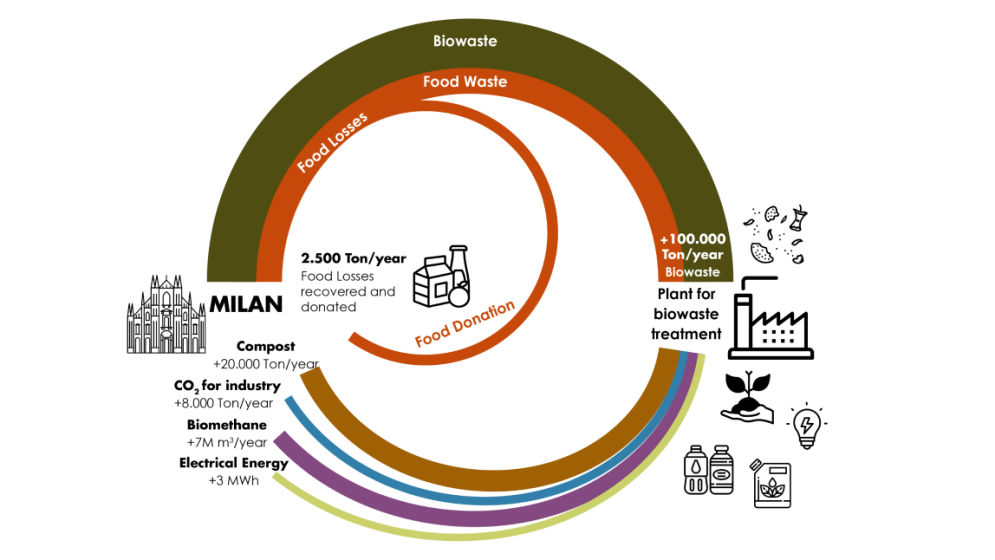
Milan biowaste cycle - infographic from Municipal office
Opening up new horizons in Milan
Creating systemic change takes time, investment, and the involvement of many different actors. With support from Urban Innovative Actions, an initiative of the European Union, Milan is leading the development of an open innovation hub, call OpenAgri, situated on 30 hectares of degraded public land, on the outskirts of the city. OpenAgri will be focused on peri-urban agriculture and act as a laboratory for innovation, acceleration programmes, and skills training that can open up employment opportunities along the agri-food supply chain.
In February 2019, to support local actors to innovate, explore, and create new business models, goods, and services, the Municipality of Milan and Fondazione Cariplo launched the Food Policy Hot Pot. The Hot Pot creates opportunities for the sharingsharingThe use of a product by multiple users. It is a practice that retains the highest value of a product by extending its use period. of research projects, and connections between large and small companies, private, public and non-profit organisations.
Influencing beyond city boundaries
Outside of the city, the team behind the Milan Food Policy are working with INTERREG CircE, a European Union initiative comprising eight partner regions around Europe, who are together developing policies that advance towards a circular economycircular economyA systems solution framework that tackles global challenges like climate change, biodiversity loss, waste, and pollution. It is based on three principles, driven by design: eliminate waste and pollution, circulate products and materials (at their highest value), and regenerate nature..
Milan’s ambition to change the food system also extends to a global audience. In parallel to the development of the Milan Food Policy they worked with the Food and Agricultural Organisation and the European Union, to promote international dialogue aimed at creating and committing to an international pact on urban food policies called the Milan Urban Food Policy Pact. The pact has been signed by 184 cities globally, and is provided as a framework for the development of urban food policies.
Green shoots of change
Milan is already experiencing the benefits of managing its relationship with food in different ways, with citizens and businesses active players in this shift.
Decreasing the amount of food that is treated as waste is not only reducing greenhouse gas emissions but also reducing disposal costs for the city. Through the generation of compost, peri-urban crop land can be regenerated, securing the long term productivity of farmland. By increasing awareness through communication of the key issues, citizens are empowered to be part of the change, and through a renewed sense of connection with the food system that supports them, they may feel encouraged to adopt healthier diets and reduce food waste as a higher value is placed on food.
The Milan Food Policy and the city’s support of related initiatives demonstrate the level of commitment of the local government, with support from Fondazione Cariplo and local, regional, and European stakeholders. Through a collaborative policy-driven approach they are laying the foundation for the creation of a circular food system.
